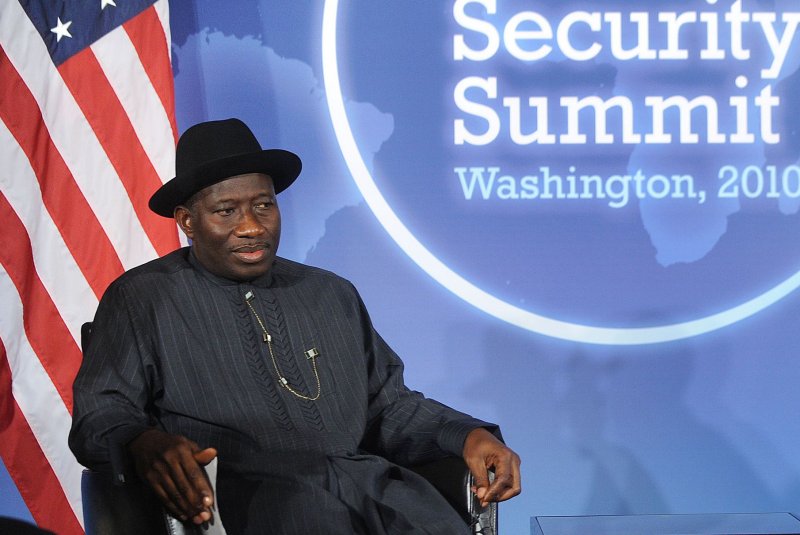Nigerian President Goodluck Jonathan faces Muhammadu Buhari in Saturday's presidential election. File photo by Olivier Douliery/Pool |
License Photo
ABUJA, Nigeria, March 27 (UPI) -- Nigerians head to the polls Saturday in what could be the country's closest -- and perhaps most violent -- election yet since its freedom from military rule in 1999.
Amid threats from Islamic militant group Boko Haram, voters in Nigeria are facing a choice between two political candidates who have gone head-to-head before: President Goodluck Jonathan, a Christian from the conservative People's Democratic Party, and challenger Mohammadu Buhari, a Muslim from the All Progressives Congress.
Jonathan has enjoyed support from Christians from the south, while Buhari is popular with Muslims in the north.
The last time the two men faced one another, in the 2011 presidential election, violence erupted in the north, leading to the deaths of 500 people and displacement of thousands more.
There are fears the same thing could happen this weekend, perhaps even worse than in previous elections because the race is expected to be closer and the economic stakes in the outcome are higher.
Nigeria relies heavily on oil production -- oil exports account for 70 percent of the government's revenue -- and with global oil prices falling, whoever is elected to lead the country will have to make difficult choices between cutting public spending or finding new ways to generate revenue, The Guardian reported.
At the same time, a recent Gallup poll indicated only 13 percent of Nigerians expressed confidence in the honesty of the forthcoming election, down from 51 percent in 2011. Safety could also be a concern for voters. Nigeria's Independent National Electoral Commission had already postponed the election by six weeks because it received word security agencies wouldn't be on hand to provide protection due to fighting with Boko Haram.
It's unclear what sort of reaction there will be from Boko Haram regardless of the outcome of the election. John Campbell, former U.S. Ambassador to Nigeria and editor of the Nigeria Security Tracker, said it's likely the militant group will attack during the elections. He also said the group tried to kill Buhari despite the commonality of religion.
Campbell said that though the elections could be free, fair and credible resulting in Nigeria becoming "a beacon of hope for the continent," there's a chance they could "trigger a larger humanitarian crisis."
"If the results are not credible or if they exacerbate festering religious and ethnic tensions, the consequence could be violence and political uncertainty at home and erosion in the credibility of democratic practices throughout the continent," he wrote on the Council for Foreign Relations website. "Instability in Nigeria could invigorate the Islamist insurgency Boko Haram."
Should Jonathan win the election, Buhari's party has already said it intends to set up a parallel government.
Meanwhile, both candidates have tried to appeal to voters' through their stomachs. Their parties have been delivering bags of rice to voters in order to rally a last-minute push in the poll numbers.















